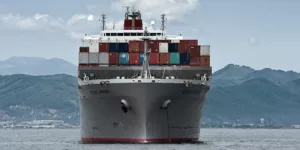Technology is essential to the long-term growth and sustainability of maritime shipping.
This form of transportation affects the jobs of many people, such as a logistics manager, supply chain manager and customs broker.
In the digital age, these professionals are able to use technological advances to streamline processes, create efficiency and save money. It’s imperative to keep up with trends and the newest legislation–at the speed of light, which technology enables one to do.
Automation Advancement: Critical To Shipping
Automation and technology advancement is crucial for ocean freight forwarding. Here’s why:
- When one loads and unloads more quickly, it leads to fewer transit days and faster customs clearance.
- Automation reduces pirate kidnappings for ransom. This helps to eliminate human error during the selection process, real-time tracking and final delivery. Technology is able to recognize objects that the human eye can’t see
The initial investment of automation is expensive but the long-term costs are far less to that of the cost of human labor, from overtime pay and sick days to costly human mistakes and lawsuits.
Other Reasons For The Importance Of Technology
Customers demand transparency, and real-time data helps with providing such critical information.
You can monitor a container with motion-sensor video to help prevent theft. You can monitor the temperature of a container at all times to prevent the spoiling of products in a reefer container. You can use RFID (radio frequency identification) technology to transmit the exact location of the products at all times, and alarms can be placed into containers to notify customers of rising temperatures and unlawful entry into a container during transit.
The transmitting of real-time data leads to complete visibility and transparency, enhanced tracking capabilities, route optimization and equipment monitoring. Blockchain technologies will protect critical information so that you can share data with everyone without data being compromised.
It reduces Freight Costs
The digital age of maritime shipping also permits a reduction in freight costs. In part, this is due to less human capital requirements and overhead costs. It also allows for shipping lines to maximize capacity by connecting shippers with available ocean vessel space for specific destinations. Both shippers and ocean lines benefit from these freight matching apps and platforms. It also leads to better customer satisfaction, customer loyalty and repeat business. You will also experience faster transit times. This leads to fewer labor hours and lower shipping costs.
It saves the planet
More and more consumers are becoming concerned with the environmental implications of ocean shipments and clean water.
The freight matching applications previously mentioned maximizes capacity that reduces the total number of ocean vessels on the sea throughout the course of the year.
Ocean vessels are also becoming more eco-friendly. This lowers the dependency of oil and the pollution into the sea. And it helps to reduce the number of ocean vessels in a fleet of an ocean line. This results in less operational costs. These savings can be passed along to the customer to increase international shipments with smaller businesses and greater industry stability.
It offers efficient and fast customs clearance
All technological advances help lead to seamless customs clearance. You can ensure import and export documentation requirements are complete and accurate. You can track the status of your shipment in real-time. It is possible to monitor your freight and whether or not it has left the vessel or if it is being held in customs for further inspection.
This allows you to contact the appropriate individuals immediately to prevent delays and additional costs.
A blog post from CAF Worldwide, a leader in the ocean freight forwarding industry explains, “Consumers have become accustomed to much faster shipping times than were previously available. To maintain customer-centric models of service and quickened delivery times, forwarders will be held to a standard that guarantees both ease of use of tracking and warehousing technologies, and attentive human customer service.”
Technology provides a far superior customer experience and makes lives easier for a logistics manager, supply chain manager and a customs broker.








